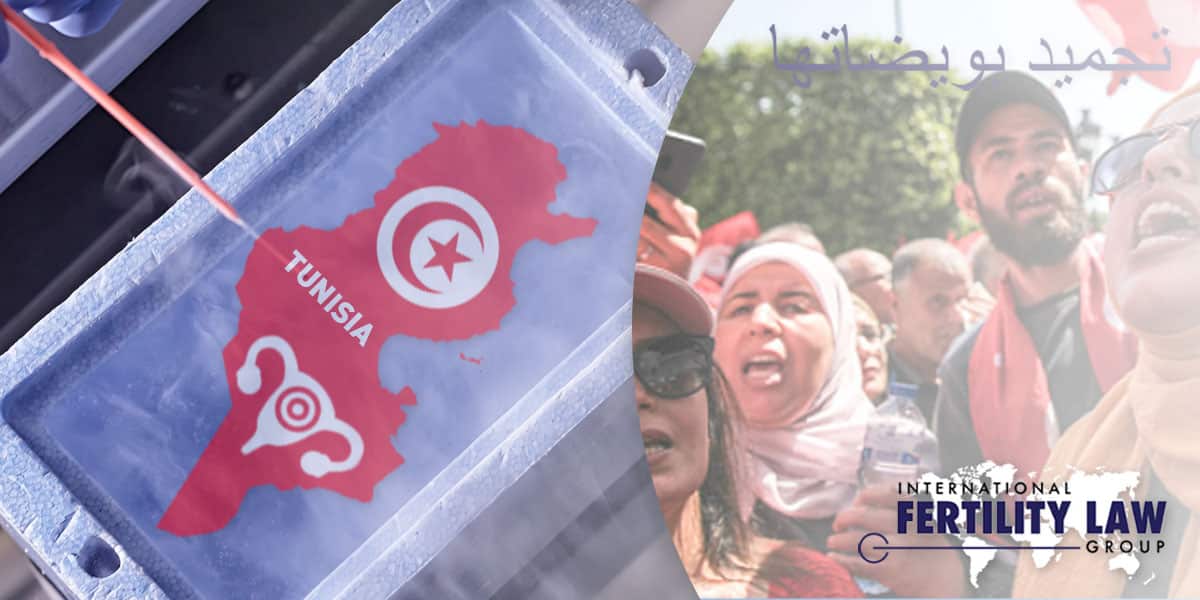
26 Jul 2022 Single Women in Tunisia Demand Right to Freeze Eggs
Tunisia, a country once considered a leading advocate for women’s rights in the Arab world, now faces criticism as single women, constrained by an outdated law, demand the right to freeze their eggs in order to reproduce in the future.
Under current Tunisian law, single women are only permitted to undertake fertility preservation by freezing their eggs if they are undergoing medical treatment, such as chemotherapy, that would leave them infertile. As it stands, the law gives no consideration to the reality that the modern single woman may have social or work obligations limiting her availability during traditional childbearing years.
Though Tunisia has recently come under fire regarding reproductive rights, the small country of 10 million nestled between Algeria and Libya has long prided itself in being a pioneer for women’s rights in the region. After regaining its independence in 1956, Tunisia set out to include all persons in society, and, by the late 1950s, women had secured the right to vote and seek office. In modern times, considering many women in neighboring countries are still not allowed to vote, drive, and can still be stoned to death for adultery, Tunisian women have enjoyed freedoms far beyond any neighboring country.
Perhaps more importantly, Tunisian women are well-educated according to The New York Times, outnumbering men with university degrees and approaching par with their male counterparts as medical doctors and judges. Tunisian women also have much higher literacy rates compared to any other North African country. But even with the immense strides Tunisian women have made over the decades, there is a new discord among single Tunisian women, who are calling for this outdated assisted reproductive law to be amended to reflect the way modern women live.
Reproductive Rights for Single Women No Longer Taboo Topic
Long considered a taboo subject, fertility preservation is now part of the public debate, thanks to social media giving more and more women an open platform to discuss the assisted reproductive disparity between married and single women.
Earlier this year, Tunisian singer Nermine Sfar sparked a heated debate by sharing with her almost 1 million Instagram followers her desire to one day become a mother and her plan to freeze her eggs. Even though the 31-year-old encourages other women who are pursuing careers to “preserve the dream of becoming a mother,” according to the African Insider, her team confirms that Sfar does not meet the criteria to freeze her eggs and, as a result, is not eligible to have the procedure.
Sfar isn't the only single professional woman calling on the Tunisian parliament to change the outdated verbiage of the law. Television journalist Nayma Chermiti also shares her frustration in African Insider, stating, “I don’t see any logic in the law.” The 40-year-old has considered the egg freezing procedure for more than two years, but the law is hindering her possible path to motherhood. Chermiti goes on to say the law “excludes healthy, single women who have professional responsibilities or financial constraints that mean they put off getting married or having children.”
Tunisian Women Opt for Education, Careers First
As more and more Tunisian women have chosen professional careers before marriage and children, the lives of Tunisian women have evolved.
Doctor Fethi Zhiwa, head of the fertility clinic at Aziza Othmana Hospital in Tunis, tells The National News that young, single women inquire about freezing their eggs almost daily and that the average age of marriage in the country is now 33 years old. Zhiwa, who was involved in the drafting of the existing law, believes the law has fallen “victim to its early approval,” even though when it was enacted in 2001 it was considered ahead of its time for reproductive rights in the region. Women may have evolved, but the law has fallen flat in keeping up with an advancing society, Zhiwa goes on to say in The National News. “There is a discrepancy between biological age, which controls the age of reproduction, and social age, which controls the evolution of careers,” Zhiwa says.
As more and more single Tunisian women take the path of career first and motherhood second, the need for equal reproductive rights for all women regardless of marital status is more important than ever. With reproductive rights nonexistent in some neighboring countries and available only for married couples in others, Tunisia’s political establishment has an opportunity to reform this outdated law to reflect the advancing society in which its people have taken pride for so long, in which men and women have equal rights regardless of marital status.
The single women of Tunisia who are fighting for equal reproductive rights today are role models for women around the world, and a reminder for all of us that, even today here in the United States, reproductive rights are precious, fragile and never to be taken for granted.

















